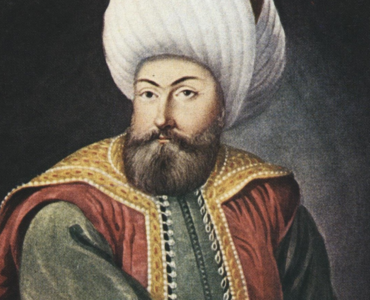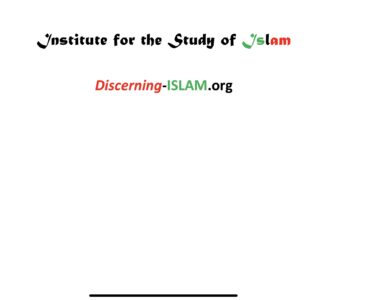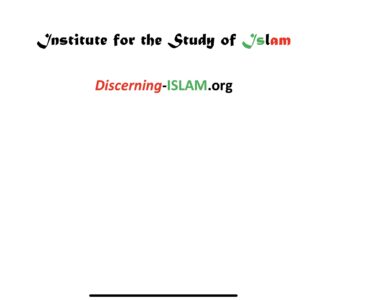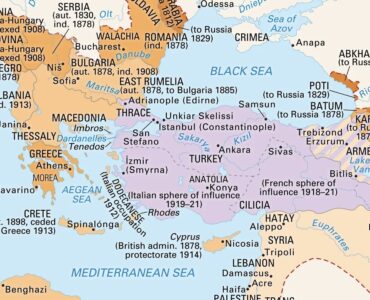
Islamic Development Bank
The Islamic Development Bank (IDB) is the principal organ of the Organization of the Islamic Conference (OIC) in the economic field. The IDB is basically an international financial institution but its scope of activities is limited to the Muslim world, i.e., OIC member states and the Muslim communities in the non-Muslim states. Nearly all members of the OIC are also members of the IDB. In fact, the Bank follows the OIC decisions in suspension and expulsion of members as well.
History Of The Islamic Development Bank
The first Islamic Conference of Finance Ministers, held at Jeddah on December 18, 1973, issued a declaration of intent to establish an Islamic Development Bank. After completion of the interim arrangements, the inaugural meeting of the Board of Governors of the Bank took place in July 1975 and the Bank formally opened on the following October 20. Tunku Abdul Rahman, the founding ex-Prime Minister of Malaysia, became the first President.
The Bank has a staff of 685, fifty of whom are Muslims from non-Muslim states. The headquarters of the Bank are located in Jeddah, Saudi Arabia, while the three regional head offices for East Asia, North Africa, and Central Asia are located in Kuala Lumpur (Malaysia), Rabat (Morocco), and Almaty (Kazakhstan), respectively, while one for sub-Saharan Africa, to be located in Dakar (Senegal) is planned. The official language of the Islamic Bank is Arabic, though English and French are additionally used as working languages. The financial year of the Bank is the lunar (hijrah) year of the Islamic Calendar. The Islamic Development Bank has five affiliated bodies: the Islamic Research and Training Institute (IRTI); the Islamic Corporation for the Insurance of Investment and Export Credit (ICIEC); the International Islamic Trade Financing Corporation (IITFC); The Islamic Corporation for Development of the Private Sector (ICD); and the World Waqf (Endowment) Foundation (WWF). The Islamic Dinar (ID) is the accounting unit of the Bank, whose value is equal to one SDR (Special Drawing Right of the International Monitory Fund). In June 2007, ID 1 was roughly equivalent to U.S. $1.429 or $1.18.
The principal objective of the Bank is to foster the economic development and social progress of member states and Muslim communities, individually as well as collectively, in accordance with the principles of the shari’a. The IDB currently has 56 member states. Each member has to subscribe to a minimum of 250 IDB shares, each with a value of ID 10,000. The three-tier administrative structure of the Bank consists of the Board of Governors, the Board of Executive Directors, and the President. The Board of Governors is the supreme authority of the Bank. Each member state is represented by a Governor, usually its finance minister or representative, and an alternate Governor. The Board of Executive Directors is composed of eleven members, of whom five are appointed by each of the five member countries having the largest number of shares, and the remaining six are elected by the Governors of the remaining member countries. The five biggest member states are:
1. Saudi Arabia (26.6 percent of the subscribed shares);
2. Kuwait (13.2 percent);
3. Libya (10.7 percent);
4. Turkey (8.4 percent); and,
5. U.A.E. (7.5 percent).
These five states account for around two thirds (66.4 percent) of the subscribed capital of the IDB. The Board of Executive Directors is responsible for the direction of the general operations of the Bank and approves all financing operations; Executive Directors hold office for three years and may be reelected. The President is the chief executive of the Bank, its legal representative as well as the chairman of the Board of Executive Directors. He is elected by the Board of Governors for a renewable term of five years. For nearly three decades Ahmad Mohammad Ali has been the President of the IDB.
In May 2006 the Board of Governors decided to double the authorized capital of the Bank to ID 30 billion. The ordinary capital resources of the Bank consist of the members ’ funds (i.e., the paid-up capital, reserves, and retained earnings). Unlike other financial institutions, the Bank does not augment its financial resources by borrowing funds from conventional world financial markets because this would involve payment of interest which is not compatible with the shari’a. The Bank, therefore, has developed new schemes and financial instruments that are in conformity with Islamic principles. These include the:
- Investment Deposit Scheme;
- IDB Unit Investment Fund;
- Longer-Term Trade Financing Scheme; and,
- Islamic Banks’ Portfolio for Investment and Development.
Financial Operations
The Bank extends financial support to its member countries for their development projects. It also helps the Muslim minority communities, mainly for social, educational and humanitarian programs. The ten financing operations of the Bank can be broadly divided in three principal categories:
- Ordinary operations;
- Trade financing operations; and,
- Special assistance operations.
Up to the end of May 1996, financing approved by the Bank amounted to ID 11,950 million (U.S. $15,112 million) excluding cancelations.
Ordinary Operations
The purpose of these operations is the development of the basic infrastructure of member countries. Agriculture, industry, transport, and social sector projects receive assistance under these operations. Out of the ID 3.025 billion spent during the first 20 years in this category, 23 percent each has gone to the industry and mining sector and public utility projects such as power generation and 18 percent each for the transport and communication sector and agriculture (especially for integrated rural development and agro-industry). In recent years, the share of the social sector, which aims at human resource development through financing of health and education operations, is on the rise.
Loan Financing
Projects that are expected to have a significant socioeconomic impact have a long-term implementation phase and are unlikely to be revenue generating. These projects — such as the construction of roads and airports, the development of rural water supplies, the establishment of schools and hospitals — are financed through loans. This is similar to interest-free loans given by the World Bank’s International Development Assistance window.
Equity Participation
Investments in share capital of new or existing enterprises is made through equity participation. The Bank acquires equity mainly in industrial and agroindustrial projects. As a policy, the Bank restricts its participation to not more than one-third of the total capital of the project, partly because of its policy not to acquire a majority or controlling share. Its role is mainly catalytic, hoping to attract other institutions which may then participate in the venture through loans or the acquisition of equity.
Leasing
Through this strategy, the Bank is able to fill critical gaps in the foreign exchange requirements of member countries by making it possible for them to acquire ships, railway cars, tractors, assembly plants, machinery and equipment, etc. Leasing involves the purchase and subsequent transfer to the beneficiary of the right of usage of equipment for a specific time, during which the IDB retains the ownership of the asset.
Installment Sale
This mode operates through the sale of capital goods on an installment basis. The Bank purchases machinery on behalf of the beneficiary and sells at a higher price in easy installments, normally ranging from six to ten years. This mode is similar to leasing, but entails the immediate transfer of ownership of the relevant assets to the buyer. The buyer can pledge these assets as collateral, in order to secure a relevant payment guarantee from private banks.
Technical Assistance
Another mode by which the IDB supports the efforts of its members by offering technical assistance, especially in undertaking feasibility studies, detailed designs, or institution building. The Bank finances consultancy services to assist its own staff in project preparation and follow-up. The selection of consultants is made through competition.
Trade Finance Operations
The IDB, as an international development financing institution, has established various means of financing to foster cooperation and trade among its member countries. As world trade expands under the Doha Round umbrella, provided that an agreement is made, trade will become even more important in the development process. Even though the intra-member trade generated through IDB financing has not been very significant in relation to the total size of the intra-trade of the IDB member countries, the IDB has often initiated and promoted trade contacts in specific commodities, which have subsequently contributed towards substantial growth in trade amongst the member countries of IDB. Import Trade Financing Operations (ITFO) accounts for 62 percent of the total financial operations of the Bank. This scheme enables the Bank to utilize its surplus funds, not immediately needed for its ordinary operations, in short-term financing, to enable its member countries to meet their import developmental requirements. In so doing, the Bank also provides temporary relief for the balance of payments problems encountered by member countries. The Longer-Term Trade Financing Scheme (LTTFS) aims at promoting export of nontraditional goods among OIC member countries through the provision of funds for periods ranging between six and sixty months. The Islamic Banks’ Portfolio (IBP) for Investment and Development is an independent fund subscribed to by the IDB and a number of Islamic commercial Banks and financial institutions. The IBP aims at providing trade financing for both imports and exports and financing for the industrial sector. It is designed to be composed of assets other than cash and debts in order to conform to the provisions of the shari’a regarding the trading and negotiability of certificates. The IBP aims specifically at catering to the needs of the private sector.
Special Assistance Operations
Since 1979, the Bank has maintained a Special Assistance Account that is kept separate from its ordinary resources and is used for the following purposes:
- Training and research aimed at helping and guiding member countries to reorient their economies in conformity with Islamic injunctions;
- Relief to Muslim areas afflicted by natural disasters and calamities;
- Financial assistance to member countries for the furtherance of Islamic causes; and,
- Financial help to Muslim communities in non-member countries to improve their socioeconomic conditions.
Contribution
The IDB has financed, wholly or partially, around two thousand projects, and has provided technical assistance to hundreds of others in member states. Along with its subsidiary, the Islamic Research Training Institute, it has also sponsored a large number of studies, training courses, seminars and symposia on Islamic banking and finance. It is, in itself, the testing ground for the theories of Islamic economics. To promote research in the field, it initiated two prizes, each worth ID 30,000 (U.S. $43,000), for outstanding work in the disciplines of Islamic banking and Islamic finance. Likewise, in order to promote Muslim women’s role in economic activity, the Bank has instituted two more annual prizes, one each for a Muslim woman (or women’s group) and for a women-led non-governmental organization, worth $50,000 and $100,000, respectively.
The Bank contributes to the cause of education in the Muslim world in other ways as well. It awards merit scholarships for advanced studies in sixteen fields (mostly related to science and technology) to promising Muslim students, in order to help develop qualified human resources in the member states. The IDB has also established a Technical Cooperation Program (TCP) to mobilize technical capabilities and promote exchange of expertise in the member countries. In addition, the Bank is engaged in activities related to information and cultural affairs, undertaking for example to implement of the OIC Information Systems Network (OICIS-NET) project that aims at improving the flow and exchange of information among Muslim societies. Among other notable projects, in September 2005 the IDB propounded Vision 1440 following the Vision 2020 project of former Malaysian Prime Minister Mahathir Mohammad, who now heads the experts committee entrusted with translating the IDB vision of a developed Muslim world into reality by the Islamic lunar year of 1440 (2019–2020CE).
Islamic Development Bank
410 – 010
https://discerning-Islam.org
Last Update: 02/2021




